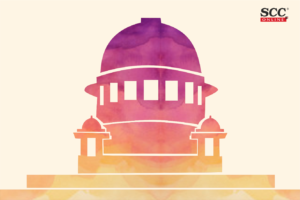Supreme Court: In the case where two different criminal appeals were being heard against two sets of accused, on account of one of them absconding, and decided against two different judgments based upon evidence recorded in separate trials, though for the commission of the same offence, the 3-judge bench of Dr. DY Chandrachud, Vikram Nath* and BV Nagarathna, has held that the Madras High Court fell into an error while passing a common judgement, based on evidence recorded in only one trial, against two sets of accused persons having been subjected to separate trials.
Why the High Court’s judgment was erroneous
Holding that the High Court ought to have distinctly considered and dealt with the evidence of both the trials and then to decide the culpability of the accused persons, the Court said,
“The essence of the above synthesis is that evidence recorded in a criminal trial against any accused is confined to the culpability of that accused only and it does not have any bearing upon a co-accused, who has been tried on the basis of evidence recorded in a separate trial, though for the commission of the same offence.”
Additional Solicitor General Vikram Banerjee had submitted before the Court that the accused could not allege prejudice in the present case as the evidence is the same in both the cases.
The Court, however, couldn’t agree with the submission and said that whether prejudice or not, the fact remains that the High Court committed an error of law in dealing with the evidence of one trial for deciding both the appeals arising out of two separate trials.
Stating that it cannot proceed on presumption and assume that everything was identical word to word, Court explained that,
“The role of each accused cannot be said to be the same. The same witnesses could have deposed differently in different trials against different accused differently depending upon the complicity or/and culpability of such accused. All these aspects were to be examined and scrutinised by the Appellate Court while dealing with both the appeals separately and the evidence recorded in the respective trials giving rise to the appeals.”
Whether to remand one case or both to the High Court for fresh decision
The Supreme Court decided to send back both the matters to the High Court and said that by remanding only the case in which the evidence was not considered and proceeding to decide the other case itself, no fruitful purpose would be served and in fact, it would be an exercise resulting in complications and contradictions and even conflicts.
“If we proceed to hear one appeal wherein the evidence has been considered by the High Court and we agree with the same, then it would influence the High Court in deciding the other matter on remand. Further, even if we could hold back this appeal and await decision of the High Court in the matter which we remand, then also the High Court would not be able to take an independent decision and would be influenced by the judgment as we would be entertaining one appeal. Moreover, if we allow one of the appeals which we are holding back, then, nothing may remain for the High Court to decide.”
The Court also noticed that the single Judge of the High Court has apparently not adopted the correct procedure prescribed under law and therefore, the judgment of the High Court needs to be set aside. “Once a common judgment is set aside for one appeal, it cannot be upheld for another appeal. There cannot be a severance of the judgment particularly when it arises in a criminal case, where the rights of the accused are as important as the rights of a victim.”
Remanded both the matters to the High Court for a fresh decision, the Court made clear that all the questions of law and fact would remain open before the High Court and the parties would be free to address the High Court on all issues both on law and facts.
[AT Mydeen v. Assistant Commissioner, Customs Department, 2021 SCC OnLine SC 1017, decided on 29.10.2021]
Counsels
For appellants: Senior Advocate R. Basant and S. Nagamuthu and advocate K.K. Mani,
For respondent: Vikramjit Banerjee, Additional Solicitor General
*Judgment by: Justice Vikram Nath

